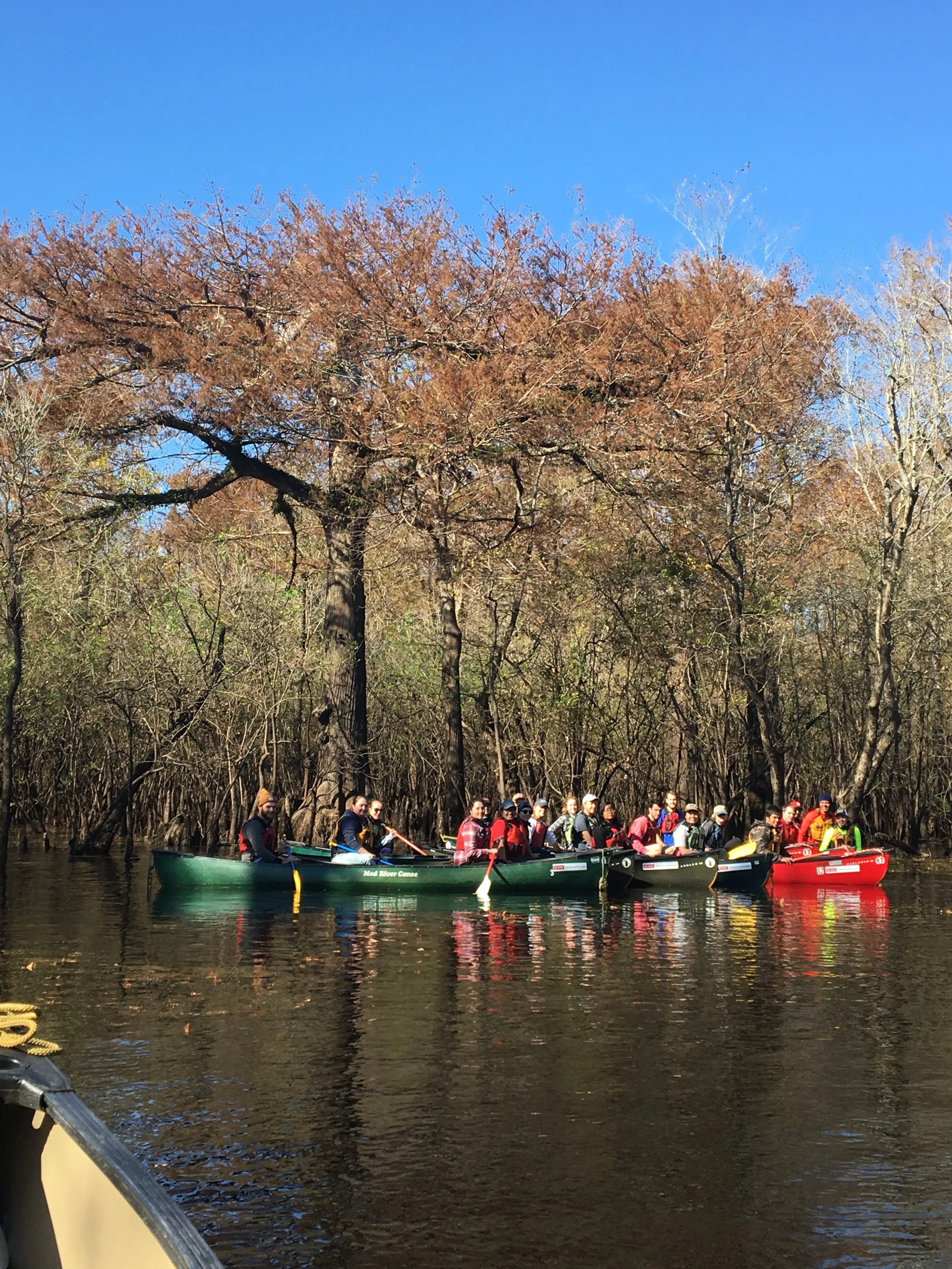Human Impacts on Water
Affecting water quantity and quality via climate and land-use change
Students visit baldcypress trees along the Black River, North Carolina, 2018.
Humans have altered the water cycle in remarkable ways. Our group has studied the direct alteration of streamflow through interbasin water transfers, and we have also studied water quality issues stemming from industrial livestock operations and other kinds of land use. We are also interested in climate variability and water cycles, including ways that humans indirectly alter streamflow via climate change.
The vast majority of this work involves modeling and analysis of large datasets such as the US Geological Survey’s national surface water database. We have also partnered with non-governmental organizations to study the spatial distribution of industrial livestock facilities - an increasingly important driver of land-use change and water quality degradation in many rural areas. This research has also involved post-disaster fieldwork to understand water quality concerns associated with major inland floods in North Carolina.
Key people on this work have included Josh Rice, Justine Neville, Theo Jass, and John Buckley. Collaborators include Katie Martin (NC State University), Angela Harris (NC State University), Sheila Saia (NC State Climate Office), and Bill Anderson (Appalachian State University).
Select Outcomes
-
Research Article: Neville JA, Emanuel RE, Nichols EG, Vose JM (2021) “Extreme Flooding and Nitrogen Dynamics of a Blackwater River” Water Resources Research
Research Article: Harris A, Fidan E, Nelson N, Emanuel RE, Jass, TL, Kathariou S, Niedermeyer J, Sharara M, de los Reyes III F, Riveros-Iregui DA, Stewart J (2021) “Microbial Contamination in Environmental Waters of Rural and Agriculturally-Dominated Landscapes Following Hurricane Florence” Environmental Science & Technology – Water
Research Article: Martin KL, Emanuel RE, Vose JM (2018) “Terra incognita: The unknown risks to environmental quality posed by the spatial distribution and abundance of concentrated animal feeding operations” Science of the Total Environment
Research Article: Emanuel RE, Buckley JJ, Caldwell PV, McNulty SG, Sun G (2015) “Influence of basin characteristics on the effectiveness and downstream reach of interbasin water transfers: displacing a problem” Environmental Research Letters
Research Article: Anderson WP and Emanuel RE (2008) “Effect of interannual and interdecadal climate oscillations on groundwater in North Carolina” Geophysical Research Letters
-
Print Journalism: “Lumberton Undeterred” WUNC (2020)
-
Blog Post by J Neville: “Graduate Fellow Finds Opportunity in Setback” (2018)
